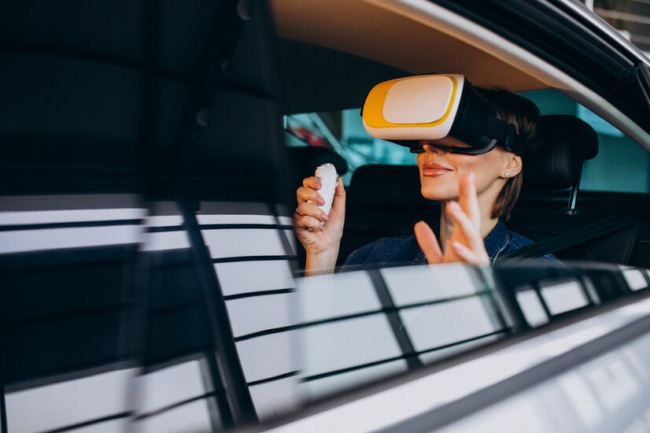In today’s competitive business landscape, every penny counts towards maintaining profitability and growth. One often overlooked yet incredibly beneficial investment for businesses is window tinting. Yes, you read that right—window tinting isn’t just for cars anymore! In fact, it offers a multitude of economic advantages for businesses of all sizes. From reducing energy costs to enhancing security and even boosting employee productivity, the benefits of window tinting extend far beyond mere aesthetics. In this blog, we’ll delve into the various ways in which businesses stand to gain financially by tinting their windows. Whether you run a small retail shop or a large corporate office, understanding these economic benefits could significantly impact your bottom line. So, let’s peel back the layers and shed some light on how window tinting can be a savvy financial decision for your business.
How Window Tinting Saves Businesses Money
 Understanding the Energy Dynamics
Understanding the Energy Dynamics
It’s essential to understand the dynamics of heat transfer through windows. Traditional windows allow both visible light and infrared radiation to pass through, leading to fluctuations in indoor temperatures. This phenomenon results in increased reliance on heating or cooling systems to maintain a comfortable environment, consequently driving up energy consumption and costs.
Regulation of Solar Heat Gain
Window tinting acts as a barrier against solar heat gain by selectively blocking infrared radiation while allowing visible light to enter. This means that during hot summer months, tinted windows prevent excessive heat from penetrating indoor spaces, reducing the strain on air conditioning systems. Similarly, in colder seasons, window tinting helps retain indoor heat, minimizing the need for heating.
Preservation of Interior Comfort
In addition to regulating temperatures, window tinting enhances interior comfort by reducing glare and minimizing temperature imbalances near windows. Employees can work more comfortably without the need for constant adjustments to lighting or temperature controls. This contributes to a more productive and conducive work environment, ultimately benefiting the bottom line of businesses.
Extending Lifespan of HVAC System
Another economic advantage of window tinting is its ability to prolong the lifespan of HVAC systems. By reducing the workload on cooling units, tinted windows help prevent wear and tear, thus reducing maintenance costs and the frequency of repairs. Businesses can allocate their resources more efficiently by investing in preventive measures such as window tinting, which offer long-term savings.
Environmental Benefits
Beyond the economic advantages, window tinting aligns with sustainable business practices by reducing energy consumption and carbon emissions. Businesses can enhance their corporate social responsibility (CSR) initiatives by adopting environmentally friendly measures like window tinting, thus positively impacting their brand image and attracting eco-conscious consumers.
Why Window Tinting is a Smart Financial Choice
In the realm of business investments, decisions are often weighed against their potential return on investment (ROI). When it comes to enhancing the infrastructure and ambiance of commercial spaces, window tinting emerges as a prudent financial choice with multifaceted benefits.
 Preserving Interior Assets: One of the primary financial considerations for any business is the protection of its assets. From furnishings to merchandise, sunlight exposure can wreak havoc, causing fading and deterioration over time. Window tinting acts as a shield, blocking harmful UV rays and preventing premature aging of interior elements. By extending the lifespan of these assets, businesses mitigate the need for frequent replacements, thereby saving substantial costs in the long run.
Preserving Interior Assets: One of the primary financial considerations for any business is the protection of its assets. From furnishings to merchandise, sunlight exposure can wreak havoc, causing fading and deterioration over time. Window tinting acts as a shield, blocking harmful UV rays and preventing premature aging of interior elements. By extending the lifespan of these assets, businesses mitigate the need for frequent replacements, thereby saving substantial costs in the long run.
- Energy Efficiency: Energy expenses constitute a significant portion of operational costs for businesses. Window tinting serves as a proactive measure to enhance energy efficiency within commercial premises. By reducing solar heat gain in the warmer months and minimizing heat loss during winters, tinted windows help regulate indoor temperatures more effectively. This translates into decreased reliance on heating, ventilation, and air conditioning (HVAC) systems, resulting in tangible savings on utility bills year-round.
- Enhanced Comfort, Improved Productivity: Glare from sunlight streaming through windows can cause discomfort, eyestrain, and distractions, ultimately hampering productivity levels. With window tinting, businesses can create a more conducive work environment by reducing glare and maintaining consistent lighting conditions. Employees experience less fatigue, better concentration, and improved job satisfaction, leading to enhanced productivity levels and, consequently, greater economic output.
- Regulatory Compliance: Non-compliance with building regulations and environmental standards can incur hefty fines and legal repercussions for businesses. Window tinting aids businesses in meeting regulatory requirements related to energy conservation, UV protection, and even safety standards in some cases. By proactively investing in window tinting solutions, businesses ensure compliance with relevant laws and codes, thus avoiding potential financial liabilities associated with non-adherence.
- Aesthetic Appeal: Beyond its functional benefits, window tinting also contributes to the aesthetic appeal of commercial properties. Tinted windows lend a sleek, modern look to buildings while maintaining transparency and visibility from both inside and outside. This aesthetic enhancement not only elevates the brand image but also attracts customers and clients, potentially increasing foot traffic and revenue generation for businesses.
The Hidden Economic Impact of Window Tinting
One such decision that often flies under the radar but yields significant economic impact is the installation of window tinting. While the immediate benefits of window tinting may seem confined to improved aesthetics or reduced glare, its hidden economic impacts can profoundly affect the bottom line of businesses in various industries.
Enhanced Energy Efficiency
At first glance, the installation of window tinting may appear to be a mere aesthetic upgrade. However, its ability to enhance energy efficiency is where its economic impact truly shines. By applying window tinting, businesses can effectively regulate indoor temperatures, reducing the reliance on heating and cooling systems. This translates into substantial savings on energy bills, particularly in regions with extreme climates. The reduction in energy consumption not only lowers operational costs but also positions businesses as environmentally responsible entities, which can resonate positively with eco-conscious consumers.
Extended Lifespan of Interior Furnishings
Businesses invest significantly in their interior furnishings, ranging from office furniture to merchandise displays. However, prolonged exposure to sunlight can accelerate wear and tear, leading to fading, discoloration, and deterioration of materials. Window tinting acts as a shield against harmful UV rays, prolonging the lifespan of interior furnishings and reducing the frequency of replacements or refurbishments. This translates into long-term cost savings for businesses, as they can allocate funds that would otherwise be spent on replacements towards growth and expansion initiatives.
Improved Employee Productivity
The indoor environment plays a crucial role in employee well-being and productivity. Excessive glare and uncomfortable temperatures can lead to distractions, discomfort, and decreased focus among employees. By installing window tinting, businesses create a more conducive work environment, free from glare and temperature fluctuations. This, in turn, enhances employee morale, concentration, and efficiency, ultimately driving up productivity levels and contributing to overall business performance.
Enhanced Customer Experience
Retail establishments, restaurants, and hospitality venues rely heavily on creating inviting and comfortable spaces to attract and retain customers. Window tinting helps businesses achieve this by reducing glare, controlling temperatures, and creating a more visually appealing ambiance. As a result, customers are more likely to linger, explore, and make purchases, thereby increasing revenue streams and fostering customer loyalty.
Regulatory Compliance and Risk Mitigation
Window tinting, particularly when it offers UV protection and enhances energy efficiency, can help businesses meet regulatory requirements related to occupant safety and environmental conservation. By staying ahead of regulatory changes and proactively implementing measures such as window tinting, businesses mitigate the risk of fines, penalties, and legal liabilities, safeguarding their financial interests and reputation.
How Window Tinting Provides Consistent Economic Benefits
- Energy Efficiency: Windows are notorious for allowing heat to penetrate during summer months and escape during winters, leading to increased reliance on heating, ventilation, and air conditioning (HVAC) systems. Window tinting acts as a barrier against unwanted heat gain or loss, helping to regulate indoor temperatures more efficiently. By reducing the strain on HVAC systems, businesses can expect to see a significant decrease in their energy bills year-round.
- Reduced Utility Costs: The correlation between window tinting and reduced utility costs is undeniable. With a more stable indoor climate maintained through tinted windows, businesses can rely less on heating or cooling mechanisms to maintain comfort levels for employees and customers. This reduction in utility usage translates directly into cost savings, providing a consistent economic benefit that accumulates over time.
- Asset Protection: Sunlight streaming through untreated windows can cause fading and damage to interior furnishings, merchandise, and even flooring. By installing window tinting, businesses create a barrier against harmful UV rays, prolonging the lifespan of their assets and reducing the frequency of replacements or refurbishments. This proactive approach to asset maintenance results in significant cost savings over the years.
- Improved Productivity: Window tinting reduces glare without compromising natural light, creating a more visually comfortable workspace that fosters productivity. As employees perform better and experience fewer distractions, businesses can expect to see improvements in overall output and performance, translating into tangible economic benefits.
- Enhanced Customer Experience: Tinted windows create a more inviting atmosphere by minimizing glare and maintaining comfortable indoor temperatures, encouraging customers to linger longer and engage more deeply with products or services. This prolonged engagement often translates into increased sales and customer satisfaction, ultimately driving revenue growth for the business.
CONCLUSION
Quality Auto Glass Tint Inc, based in Salida, California, offers businesses an opportunity to enhance their economic prosperity through window tinting. With our expertise, businesses can capitalize on reduced energy costs, increased security, and improved aesthetics, ultimately leading to enhanced operational efficiency and customer satisfaction. Our commitment to quality service ensures that businesses can reap the long-term benefits of window tinting, making it a worthwhile investment for their financial success. Contact us at (209) 900-8269 to explore how we can enhance your business environment today.




